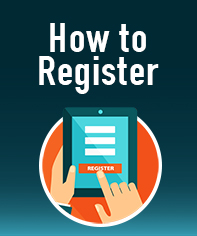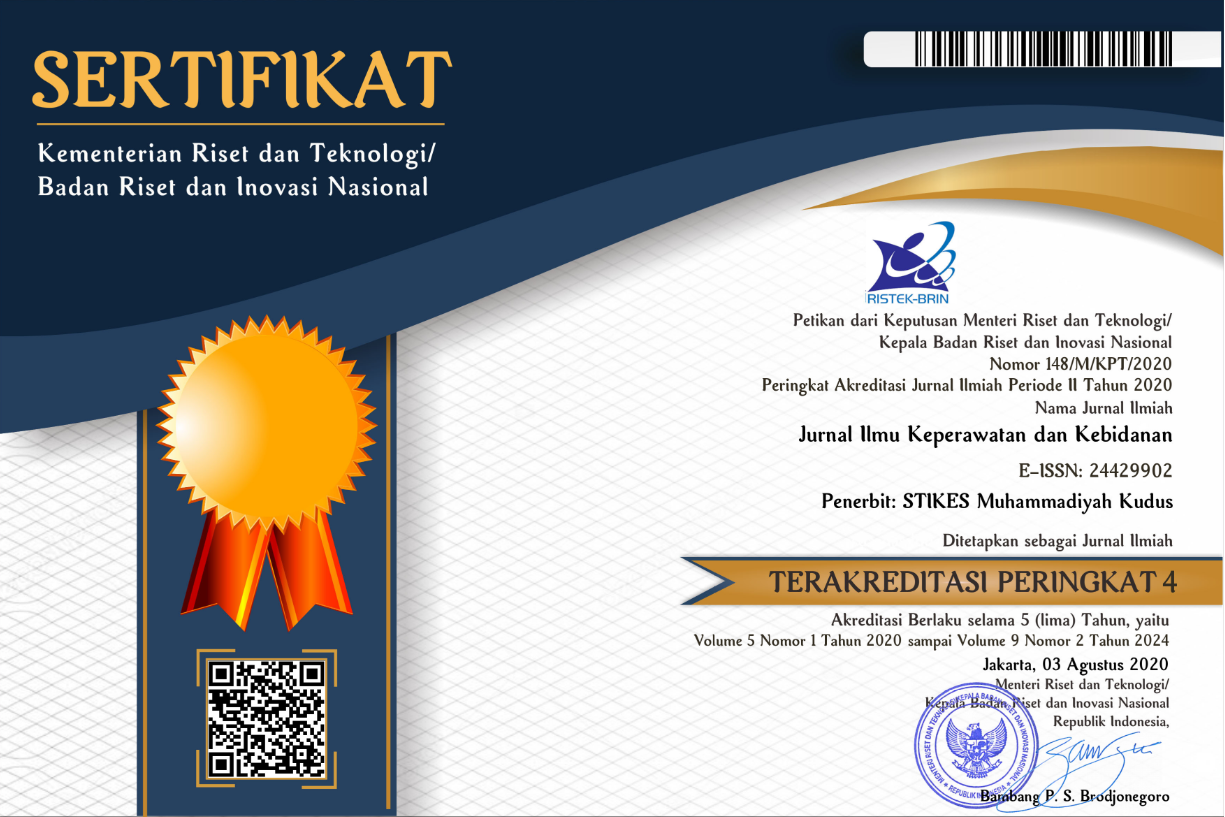KONSEP, MODEL ATAU TEORI YANG EFEKTIF SEBAGAI PENDEKATAN EDUKASI DALAM MERUBAH PERILAKU PASIEN DIABETES MELITUS : LITERATUR REVIEW.
Abstract
ABSTRAK
Penderita Diabetes Melitus (DM) tiap tahunnya mengalami peningkatan, apabila tidak tertangani dengan baik maka akan menimbulkan berbagai macam komplikasi. Komplikasi dan resiko dapat dicegah apabila perilaku terhadap pola hidup dan kebiasan pasien DM dapat berubah. Terdapat beberapa teori perubahan perilaku yang dapat di gunakan dalam melakukan edukasi kesehatan pada pasien DM. Meskipun demikian evaluasi terhadap konsep, model atau teori sebagai media edukasi dalam perubahan perilaku pasien DM belum diketahui. Tujuan dari literature review ini adalah untuk mengetahui konsep, model atau teori yang efektif digunakan untuk memberikan edukasi kesehatan kepada pasien DM dalam merubah perilaku mereka. Metode yang digunakan dengan cara melakukan pencarian beberapa studi yang diterbitkan melalui database PubMed, Science Direct, Wiley dan Google Scholar. Strategi pencarian menggunakan kombinasi istilah MeSH Terms. Pertanyaan penelitian dirancang dengan menggunakan prinsip PICO. Studi yang dipilih diterbitkan dari tahun 2015-2019. Setelah dilakukan pencarian artikel dengan kata kunci tersebut maka total artikel yang di review dalam tinjauan literatur ini sebanyak delapan artikel. Konsep, model atau teori PRECEDE PROCEED paling banyak digunakan dalam pencarian literatur ini dibandingkan dengan model yang lain dan salah satu penelitian mengatakan bahwa peningkatan yang signifikan sudah terjadi sejak bulan pertama setelah dilakukannya intervensi.
Kata Kunci : diabetes mellitus, theory, model, behavior
ABSTRACT
Patients with Diabetes Mellitus (DM) have increased every year, if not handled properly it will cause various kinds of complications. Complications and risks can be prevented if behavior towards the lifestyle and habits of DM patients can change. There are several theories of behavior change that can be used in health education for DM patients. However the evaluation of concepts, models or theories as educational media in changing the behavior of DM patients is unknown. The purpose of this literature review is to find out the concepts, models or theories that are effectively used to provide health education to DM patients in changing their behavior. The method used by searching several studies published through the PubMed, Science Direct, Wiley and Google Scholar databases. The search strategy uses a combination of MeSH Terms. Research questions were designed using PICO principles. Selected studies were published from 2015-2019. After searching for articles with these keywords, the total articles reviewed in this literature review were eight articles. The concept, model or theory of PRECEDE PROCEED is the most widely used in this literature search compared to other models and one of the studies says that a significant increase has occurred since the first month after the intervention.
Keywords : diabetes mellitus, theory, model, behavior
Full Text:
PDFReferences
Ayu-Erika, K., Puspitha, A., Ilkafah, & Syahrul, S. (2020). Prediabetes among overweight and obese school-aged children: A cross-sectional study. Enfermería Clínica, 30, 49–54. https://doi.org/10.1016/J.ENFCLI.2019.07.029
Azar, F. E., Solhi, M., Darabi, F., Rohban, A., Abolfathi, M., & Nejhaddadgar, N. (2018). Effect of educational intervention based on PRECEDE-PROCEED model combined with self-management theory on self-care behaviors in type 2 diabetic patients. Diabetes and Metabolic Syndrome: Clinical Research and Reviews, 12(6), 1075–1078. https://doi.org/10.1016/j.dsx.2018.06.028
Barasheh, N., Shakerinejad, G., Nouhjah, S., & Haghighizadeh, M. H. (2017). The effect of educational program based on the precede-proceed model on improving self-care behaviors in a semi-urban population with type 2 diabetes referred to health centers of Bavi, Iran. Diabetes and Metabolic Syndrome: Clinical Research and Reviews, 11, S759–S765. https://doi.org/10.1016/j.dsx.2017.05.012
Boniol, M., Dragomir, M., Autier, P., & Boyle, P. (2017). Physical activity and change in fasting glucose and HbA1c: a quantitative meta-analysis of randomized trials. Acta Diabetologica, 54(11), 983–991. https://doi.org/10.1007/s00592-017-1037-3
Cho, N. H., Shaw, J. E., Karuranga, S., Huang, Y., da Rocha Fernandes, J. D., Ohlrogge, A. W., & Malanda, B. (2018). IDF Diabetes Atlas: Global estimates of diabetes prevalence for 2017 and projections for 2045. Diabetes Research and Clinical Practice, 138, 271–281. https://doi.org/10.1016/j.diabres.2018.02.023
Dehghani-Tafti, A., Mazloomy Mahmoodabad, S. S. aei., Morowatisharifabad, M. A. l., Afkhami Ardakani, M., Rezaeipandari, H., & Lotfi, M. H. assa. (2015). Determinants of Self-Care in Diabetic Patients Based on Health Belief Model. Global Journal of Health Science, 7(5), 33–42. https://doi.org/10.5539/gjhs.v7n5p33
Juul, L., Andersen, V. J., Arnoldsen, J., & Maindal, H. T. (2016). Effectiveness of a brief theory-based health promotion intervention among adults at high risk of type 2 diabetes: One-year results from a randomised trial in a community setting. Primary Care Diabetes, 10(2), 111–120. https://doi.org/10.1016/j.pcd.2015.07.002
Kementrian Kesehatan RI. (2018). Hasil Utama Laporan Riskesdas 2018. Jakarta: Badan Penelitian Dan Pengembangan Kesehatan Departemen Kesehatan Republik Indonesia, 22. https://doi.org/1 Desember 2013
Naderyanfar, F., Shahrakimoghadam, E., Heidari, M. A., & Soleimani, M. (2019). Evaluation of the Effect of Video-based Education on Self-care of Patients with Type II Diabetes. Journal of Diabetes Nursing, 7(1), 672–682. Retrieved from http://jdn.zbmu.ac.ir/article-1-343-en.html
Nejhaddadgar, N., Darabi, F., Rohban, A., Solhi, M., & kheire, M. (2019). Effectiveness of self-management program for people with type 2 diabetes mellitus based on PRECEDE PROCEED model. Diabetes and Metabolic Syndrome: Clinical Research and Reviews, 13(1), 440–443. https://doi.org/10.1016/j.dsx.2018.08.016
Nguyen, T. P. L., Edwards, H., Do, T. N. D., & Finlayson, K. (2019). Effectiveness of a theory-based foot care education program (3STEPFUN) in improving foot self-care behaviours and foot risk factors for ulceration in people with type 2 diabetes. Diabetes Research and Clinical Practice, 152, 29–38. https://doi.org/10.1016/j.diabres.2019.05.003
Porter, C. M. (2016). Revisiting Precede-Proceed: A leading model for ecological and ethical health promotion. Health Education Journal, 75(6), 753–764. https://doi.org/10.1177/0017896915619645
Ramadas, A., Chan, C. K. Y., Oldenburg, B., Hussein, Z., & Quek, K. F. (2018). Randomised-controlled trial of a web-based dietary intervention for patients with type 2 diabetes: Changes in health cognitions and glycemic control. BMC Public Health, 18(1), 1–13. https://doi.org/10.1186/s12889-018-5640-1
Selçuk-Tosun, A., & Zincir, H. (2019). The effect of a transtheoretical model–based motivational interview on self-efficacy, metabolic control, and health behaviour in adults with type 2 diabetes mellitus: A randomized controlled trial. International Journal of Nursing Practice, (July 2018), 1–12. https://doi.org/10.1111/ijn.12742
World Health Organization. (2016). GLOBAL REPORT ON DIABETES. 1–88. Retrieved from https://www.who.int/news-room/fact-sheets/detail/diabetes
Yusuf, S., Okuwa, M., Irwan, M., Rassa, S., Laitung, B., Thalib, A., … Sugama, J. (2016). Prevalence and Risk Factor of Diabetic Foot Ulcers in a Regional Hospital , Eastern Indonesia. (February), 1–11. https://doi.org/10.4236/ojn.2016.61001
DOI: https://doi.org/10.26751/jikk.v12i1.845
Refbacks
- There are currently no refbacks.
Universitas Muhammadiyah Kudus - LPPM Universitas Muhammadiyah Kudus
Jl. Ganesha 1 Purwosari Kudus 59316
Tel/ Fax +62-291-437218 Email : lppm@umkudus.ac.id
Jurnal Ilmu Keperawatan dan Kebidanan Indexed by:

This work is licensed under a Creative Commons Attribution-ShareAlike 4.0 International License.













